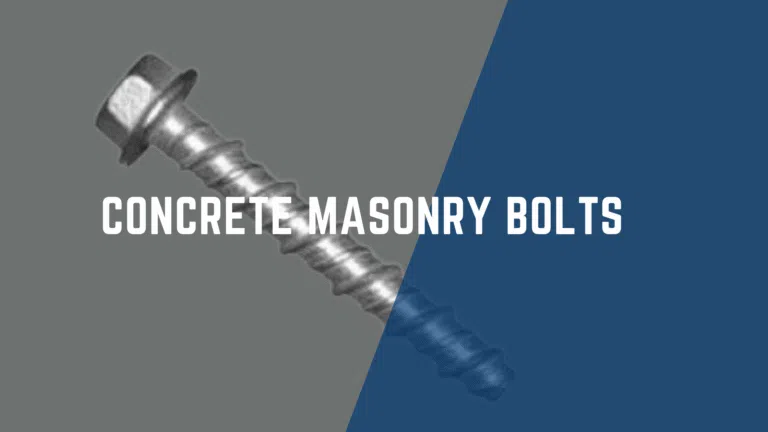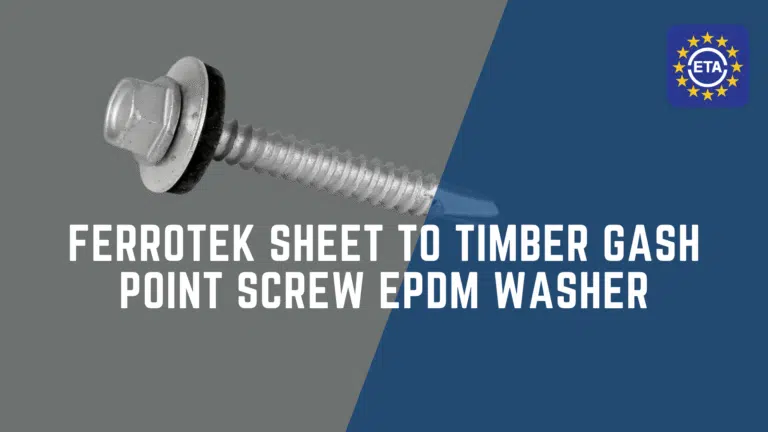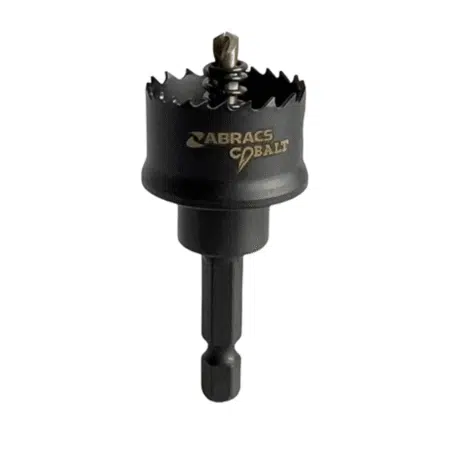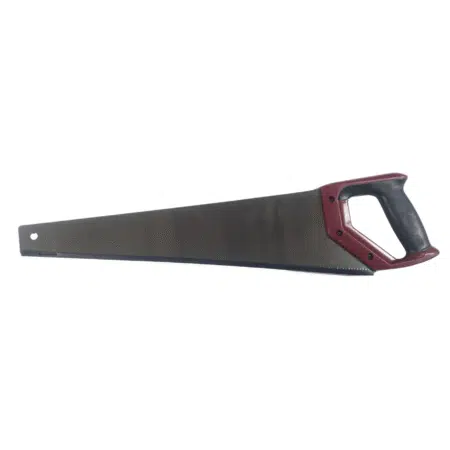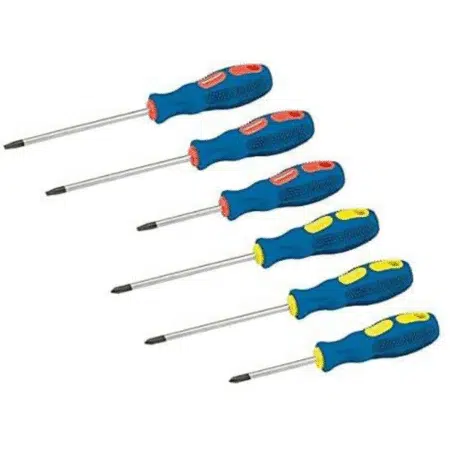You may be considering using concrete masonry bolts for your construction projects, but it’s imperative to understand that some of these bolts are not certified. This blog post presents key statistics and facts about their performance, durability, and potential risks. Knowing what to look for and the implications of using uncertified bolts can help you make informed decisions, ensuring your projects are not only efficient but also safe and reliable. Understanding the concrete masonry bolts importance is essential for maintaining structural integrity and safety in construction. When using certified products, you can trust that they have been rigorously tested and adhere to industry standards, reducing the likelihood of failures. Ultimately, prioritizing quality in your choice of materials contributes to the longevity and success of your projects. A concrete masonry bolts overview reveals the importance of selecting the right type for specific applications, as the wrong choice can compromise structural integrity. Additionally, understanding the installation guidelines and maintenance recommendations is crucial to maximizing their effectiveness. By prioritizing quality and safety, you can enhance the longevity of your construction projects and avoid costly repairs down the line.
Key Takeaways:
- Concrete masonry bolts that are not certified may lack assurance regarding their strength and durability, potentially impacting structural integrity.
- Users should be aware that non-certified bolts may have varying performance standards, which can lead to inconsistent results in anchoring applications.
- It is advisable to consider the specific requirements of the project and opt for certified products where safety and reliability are paramount.
The Uncertified Dilemma: Risks and Realities
Opting for uncertified concrete masonry bolts can introduce significant risks to your projects. Without certification, you lack reliable guarantees of their performance under load, which can compromise structural integrity. In the face of unexpected stresses, such as heavy loads or environmental conditions, these bolts could fail, leading to catastrophic consequences like structural collapse or injury. A thorough understanding of these alternatives and their limitations is vital to ensuring the safety and longevity of your constructions. Additionally, it’s essential to stay informed about the latest industry standards and practices concerning fasteners. For those who choose to use uncertified options, adhering to concrete masonry bolts usage tips can help mitigate some risks by ensuring proper installation techniques and load assessments. Ultimately, investing in certified materials is a prudent choice for long-term project success and safety.
 What Uncertified Bolts Mean for Structural Integrity
What Uncertified Bolts Mean for Structural Integrity
The absence of certification on concrete masonry bolts raises serious concerns regarding their load-bearing capacity and overall reliability. Testing and certification processes abide by strict standards, ensuring that each bolt can withstand specified forces, thus safeguarding your structures. Without this assurance, you are left guessing about the quality and performance of your materials, greatly endangering the stability of your construction. The lack of verified specifications can lead to improper installation, resulting in costly repairs or, in severe cases, catastrophic failures. This uncertainty becomes particularly critical in concrete masonry bolt applications, where strength and durability are paramount to structural integrity. Therefore, it is essential to prioritize the use of certified products to ensure the longevity and safety of your projects.
The Potential Hazards in Various Applications
Employing uncertified concrete masonry bolts poses distinct hazards in a variety of applications. Whether in residential buildings, commercial facilities, or infrastructure projects, the risk of failure increases, jeopardising not only the structure itself but also the safety of its occupants. The potential for accidents to occur under unexpected conditions is significantly heightened; for example, in high-load scenarios or adverse weather, the absence of rigorous testing can quickly turn a simple installation into a hazardous situation.
In construction, scenarios where heightened loads are expected, such as in multi-storey buildings or heavy machinery installations, underline the urgency of using certified materials. Reports indicate instances where uncertified bolts have led to structural failures, resulting in significant financial losses and legal liabilities. A notable case involved a commercial building where the use of uncertified bolts contributed to a partial collapse due to inadequate load resistance during a storm, highlighting the dangers you may face when choosing these materials. Your best course of action is to avoid such pitfalls by ensuring all components meet regulatory standards before use.
Statistical Insights: The Numbers Behind Usage
Understanding the statistics surrounding concrete masonry bolts is vital for informed decision-making in construction. A recent survey highlighted that approximately 70% of builders have reported using non-certified concrete masonry bolts in their projects. Alarmingly, 30% of these professionals acknowledged that they were unaware of the potential risks associated with using uncertified products, showcasing a significant gap in knowledge that requires attention.
Frequency of Use in Construction Projects
In a typical construction project, the frequency of using concrete masonry bolts is substantial. Over 60% of commercial constructions reported employing these bolts for securing fixtures, indicating their popularity due to perceived affordability and availability. However, the lack of certification raises concerns about the long-term safety and structural integrity of these installations. Moreover, proper adherence to the concrete masonry bolt installation steps is crucial for ensuring that these fixtures remain stable over time. Contractors often overlook these guidelines, which can lead to improper anchoring and potential failures. As the construction industry evolves, implementing rigorous standards and certifications for bolt usage will be essential to enhance safety and performance.
 Correlation Between Bolt Certification and Performance
Correlation Between Bolt Certification and Performance
Research has demonstrated a strong correlation between bolt certification and overall performance in construction applications. Certified bolts undergo rigorous testing to ensure they meet industry standards, while non-certified alternatives may lack this assurance and durability. This disparity has implications for the stability of structures, where using uncertified bolts can lead to higher rates of failure.
A study analysing performance levels revealed that structures relying on certified concrete masonry bolts reported 50% fewer instances of failure compared to those using uncertified options. Furthermore, buildings that incorporated certified bolts experienced enhanced resistance to environmental stressors, confirming that opting for certified materials is not merely a regulatory formality, but a critical factor in safeguarding structural integrity. Choosing to invest in certified bolts can significantly reduce risks and ensure a higher standard of safety and reliability in your projects. Additionally, experts emphasize the importance of rigorous testing and certification processes in the manufacturing of construction materials. The link between concrete masonry bolts and safety is clear; utilizing these certified products not only enhances durability but also instills confidence in the longevity of the structure. As the construction industry continues to evolve, prioritizing quality assurance through certified materials will remain essential for optimizing performance and ensuring occupant safety.
Industry Perspectives: Voices of Experts
Engaging with experts in the field provides a comprehensive understanding of the implications surrounding the use of uncertified concrete masonry bolts. Their insights shed light on the real-world challenges and considerations that impact construction practices. With varying opinions from structural engineers to safety inspectors, a multifaceted view emerges, emphasising the need for diligence when selecting materials for construction projects.
Opinions from Structural Engineers on Uncertified Bolts
Structural engineers often express concerns regarding uncertified concrete masonry bolts, emphasising the potential for compromising structural integrity. Many state that relying on uncertified products can lead to unforeseen failures, particularly in high-load applications where safety is paramount. Their advocacy for adhering to certification standards stems from a desire to prevent catastrophic outcomes that may arise from using inferior materials.
Insights from Safety Inspectors on Compliance Challenges
Safety inspectors frequently encounter hurdles with uncertified bolts as they navigate compliance with building regulations. The absence of certification complicates their ability to assure safety standards, creating uncertainty around legal liability should failures occur. Inspectors note that even minor issues can escalate into significant risks, underscoring the importance of using certified fasteners to ensure that your structures meet all required codes.
Inspectors report that construction projects utilising uncertified bolts often face delays as they rectify compliance gaps. In many cases, the inability to verify the quality of materials leads to extended assessments and additional costs, not to mention the potential risk to public safety. Case studies demonstrate that projects that prioritise the use of certified materials not only ensure compliance but also streamline the inspection process, leading to greater efficiency and safety assurances. Your commitment to using certified materials can mitigate these challenges significantly.
Cost Implications: Weighing Savings Against Safety
Choosing between certified and uncertified concrete masonry bolts often boils down to a balance between cost savings and safety assurances. While uncertified bolts may offer a lower initial price, they do not provide the same guarantees in terms of performance and reliability. Ultimately, you must assess whether the short-term financial benefits outweigh the potential long-term repercussions of faulty fasteners, which could lead to structural failures and additional costs in repairs or legal liabilities.
The Price Gap Between Certified and Uncertified Bolts
The price difference between certified and uncertified bolts can be significant, sometimes up to 30-50% cheaper for the latter. However, while you might be enticed by the lower sticker price, this can lead to a false economy. By opting for uncertified options, you risk compromising on quality and safety, which could entail far higher costs in the future if failures occur.
Long-Term Financial Risks of Using Uncertified Fasteners
Utilising uncertified fasteners exposes you to various long-term financial risks, such as increased maintenance costs and potential legal ramifications. Should a failure occur, you might face expensive repairs or even fines from regulatory authorities. The financial implications extend beyond immediate costs; any loss of reputation could adversely affect your future business opportunities and contracts, compounding financial losses over time.
In 2018, a major construction project faced a significant setback when uncertified bolts were discovered in its masonry, resulting in a £500,000 repair bill and legal claims from stakeholders. This incident underscores the hidden costs of opting for cheaper, uncertified fasteners; the long-term ramifications can severely impact your financial viability. Additionally, unforeseen accidents caused by these faulty fasteners could lead to injury claims, further escalating your financial exposure and jeopardising your company’s reputation in the industry.
 The Path Forward: Best Practices for Utilisation
The Path Forward: Best Practices for Utilisation
Utilising concrete masonry bolts effectively hinges on understanding the specific requirements of your project. Proper selection and application of these fasteners can enhance structural integrity and longevity. Always assess the conditions of the environment and load expectations to determine the most suitable bolt type, ensuring that your installation meets both performance standards and safety requirements. Consider consulting with a structural engineer to evaluate the load-bearing capacity and specific environmental factors that could impact your choice. Additionally, staying informed about industry best practices for concrete masonry bolt applications will further enhance the effectiveness of your installation. This knowledge allows you to make informed decisions that boost the reliability and safety of your construction project.
Guidelines for Selecting Fasteners for Specific Tasks
Choosing the correct fastener for your tasks requires evaluating factors such as the substrate material, load type, and environmental exposure. For instance, expansion bolts are ideal for heavier loads, while tap-in anchors serve well for lighter applications. Always consult manufacturer’s specifications and ensure that the selected fastener aligns with your project’s needs.
Recommended Practices for Safety Compliance and Quality Assurance
Safety compliance is paramount in the use of concrete masonry bolts. Implementing regular inspections and adhering to recognised standards, such as those set by the British Standards Institution (BSI), can greatly mitigate risks. Proper training for your team and using high-quality materials also contribute significantly to achieving optimal performance and safety.
To maintain safety compliance and assure quality, establish a routine that includes inspections before and after installation. Ensure that your team is familiar with safety regulations and trained in the correct techniques for installation. Utilising certified tools and products can further eliminate potential hazards. Keeping a detailed record of materials and compliance checks will aid in operational transparency and provide valuable insights for future projects. Lastly, involving safety officers during the planning phase can enhance overall project outcomes, especially in complex installations.
Conclusion
Following this, you should have a better understanding of concrete masonry bolts that are not certified and their significance in construction. It’s crucial to note the potential implications of using these bolts, particularly regarding safety and compliance. By familiarising yourself with the stats and key facts associated with non-certified products, you can make more informed decisions for your projects and ensure the integrity of your constructions. Additionally, it’s important to consult with industry experts and review current regulations related to concrete masonry bolts usage. Evaluating the long-term performance of these materials can also help mitigate risk and enhance the durability of structures. Ultimately, making educated choices about bolt selection can lead to safer, more reliable construction outcomes.
FAQ
Q: What are concrete masonry bolts?
A: Concrete masonry bolts are fasteners specifically designed for anchoring objects to concrete or masonry surfaces. They typically feature a threaded design that allows them to be securely anchored into pre-drilled holes within concrete blocks or bricks. These bolts can be used in a variety of construction and repair applications, providing a durable and robust fixing method ideal for both indoor and outdoor use.
Q: What does ‘not certified’ mean in the context of concrete masonry bolts?
A: ‘Not certified’ indicates that the concrete masonry bolts have not undergone independent testing and certification to meet specific industry standards or regulations. This can suggest variability in manufacturing quality or performance. While these bolts can still be effective for certain applications, users should evaluate their suitability and performance based on their specific needs, as they might not meet commercial or regulatory requirements. It is crucial for users to understand the concrete masonry bolts importance in ensuring structural integrity and safety in construction projects. Selecting certified products can provide additional reassurance regarding their reliability and performance under various conditions. Ultimately, the choice should align with the demands of the specific application and the potential risks involved.
Q: What materials are typically used in the production of concrete masonry bolts?
A: Concrete masonry bolts are generally made from a range of materials, including carbon steel, stainless steel, or alloy steel. Each of these materials offers different levels of strength, corrosion resistance, and overall durability. The choice of material often depends on the specific application, environmental conditions, and whether there is a need for resistance against rust or corrosion.
Q: What are the key factors to consider when using concrete masonry bolts?
A: When using concrete masonry bolts, several factors should be taken into account, including the load-bearing capacity required for the application, the size and depth of the pre-drilled hole, the material compatibility between the bolt and the masonry, and environmental conditions such as moisture or exposure to chemicals. Proper installation and torque specifications are also vital to ensure optimum performance and safety.
Q: Where can concrete masonry bolts be typically utilised?
A: Concrete masonry bolts are commonly used in various settings, including construction sites, infrastructure projects, and DIY applications. They can be utilised for anchoring machinery, securing structural elements, fastening fixtures such as handrails or shelving systems, and even in outdoor applications for items like fences and signage. Their versatility makes them valuable in both residential and commercial projects.
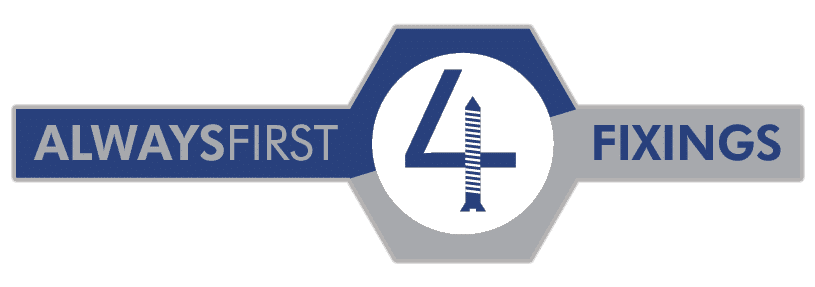
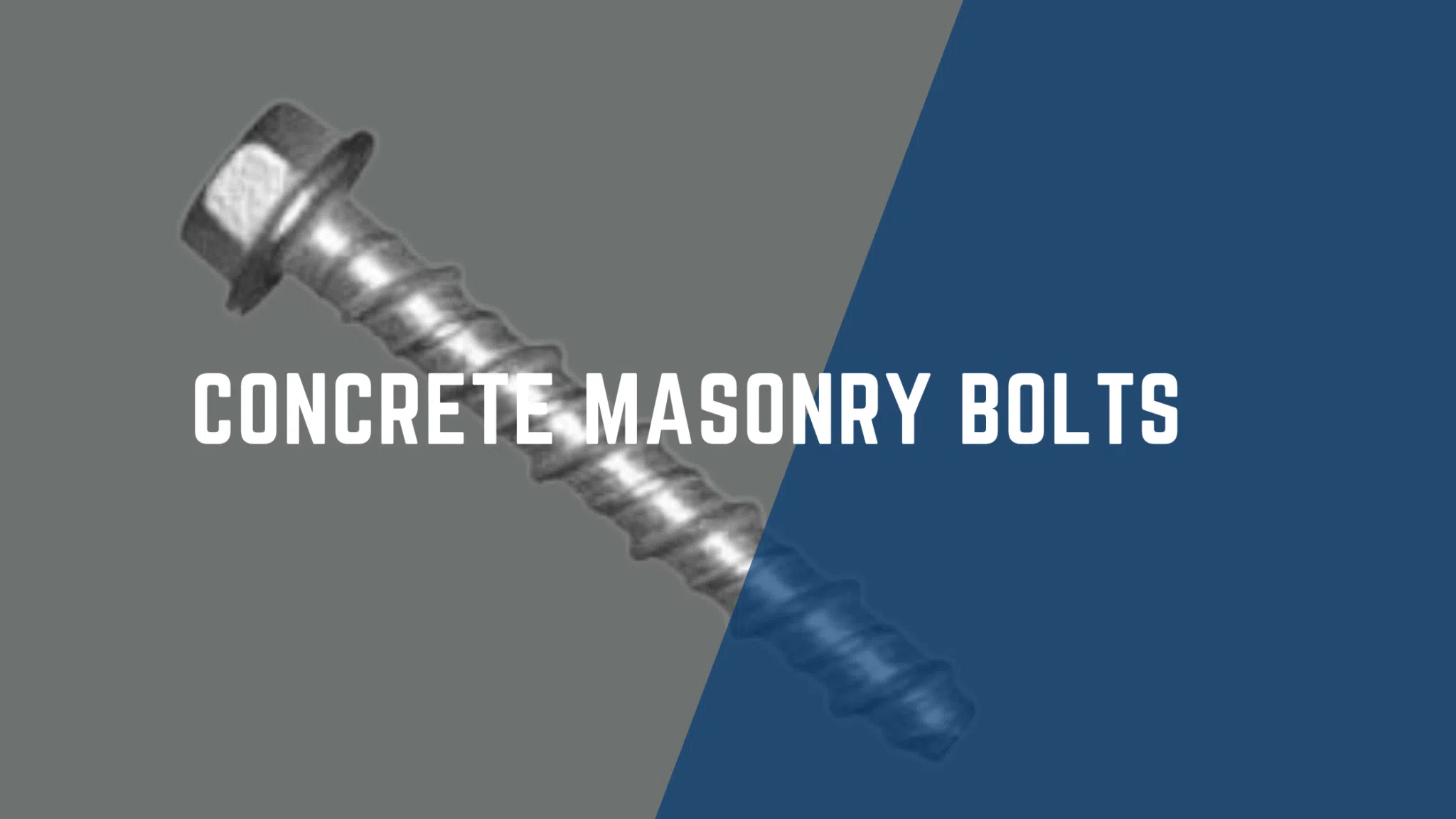
 What Uncertified Bolts Mean for Structural Integrity
What Uncertified Bolts Mean for Structural Integrity Correlation Between Bolt Certification and Performance
Correlation Between Bolt Certification and Performance The Path Forward: Best Practices for Utilisation
The Path Forward: Best Practices for Utilisation

